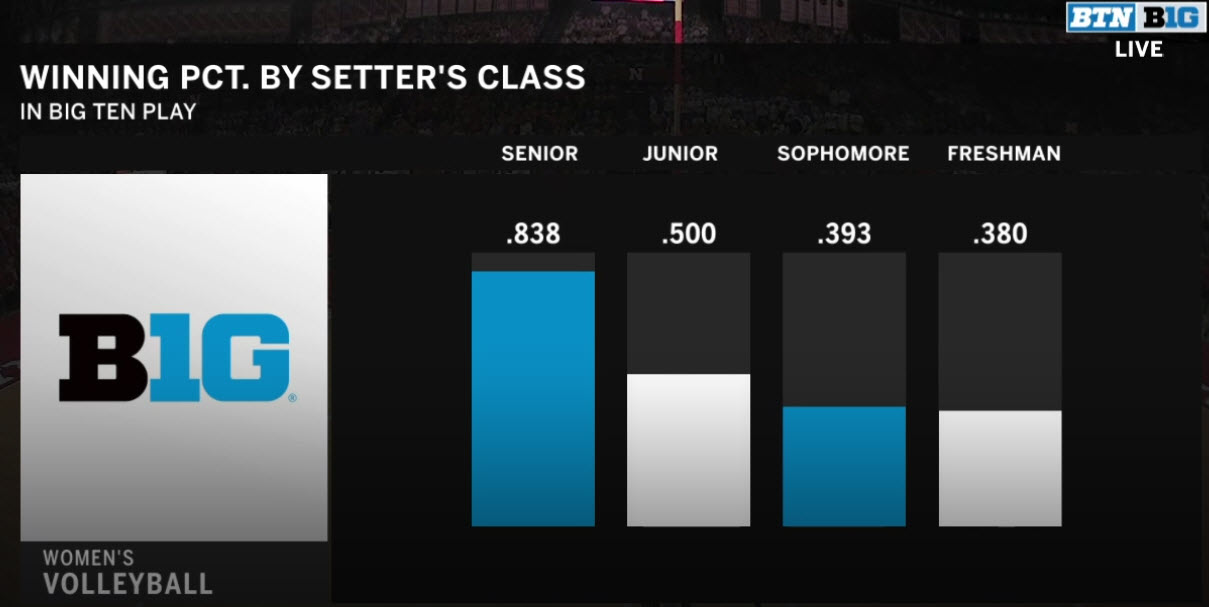Player experience is something I never discount. All else equal, more experienced players are better players. It’s a simple fact. If you coach a school team – high school, college – your upperclassmen will be better players than your underclassmen. At least they should be!
Why?
Well, first because they have more training. They probably also have at least some playing experience at your level. Second, especially at the college level, their work in the weight room has made them physically more capable.
We can say the same thing about players on a professional team. A 25 year-old is almost always a better player than a 20 year-old for similar reasons.
Are there exceptions? Of course! Sometimes a young player is just a physical freak. Sometimes the older player is slowed down by injuries or has lost their motivation. Generally speaking, though, older players are better than younger ones.
A graphic from a Big 10 match between Nebraska and Penn State in 2018 highlights this fact. It shows the winning % by class year for setters across the conference. The figures are dramatic.

Now, I will be the first to say this is a small sample size. As a result, the figures could be influenced by a number of factors not related to the age of the players.
That said, where does experience tend to most influence a player’s performance? In decision-making, right? Certainly, mental gains far exceed physical ones once players reach physical maturity. Setter decision-making drives a team’s performance, so it’s easy to see how maturity in that position can play a big role in its success or failure.
Maybe one day I’ll run a statistical study of players in all positions, though I suspect I know what I’ll find. 🙂
The reason I bring this all up is because of things I hear sometimes from college coaches. They say they recruit players they think can start over returning players (as I talk about here). This is fine if you are in a rebuilding situation. If you have an established program, though, and this is your mentality, it suggests to me you’ve done a poor job developing the players you have.
I was once asked in an interview how you handle losing your best players. My response was that I hope I’m losing my best players every year. My best players should be my senior starters who are graduating. If that’s not the case then I’m failing my athletes.